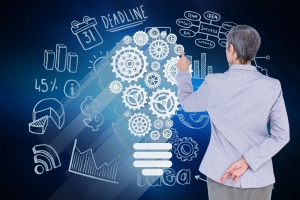The Ultimate Guide to Energy Drinks: Benefits, Risks, and Everything You Need to KnowIn today's fast-paced world, where long work hours, tight deadlines, intense workouts, and constant social activities are the norm, energy drinks have become a popular solution to beat fatigue and boost performance. Whether you're a student preparing for exams, a professional working late hours, or a fitness enthusiast looking for an extra push during your workout, energy drinks promise to deliver that much-needed burst of energy. But how effective are they? Are they safe? And what are the long-term impacts? In this detailed guide, we'll explore everything about energy drinks—from what they are and how they work to their benefits, side effects, types, and much more. Let's dive in. 1. What Are Energy Drinks?Energy drinks are beverages formulated to boost energy levels, enhance mental alertness, and improve physical performance. Unlike regular soft drinks or fruit juices, energy drinks typically contain a combination of:
These drinks are often marketed toward young adults, athletes, gamers, and professionals as a quick and effective way to stay awake and focused. 2. History of Energy DrinksThe concept of energy-boosting beverages is not new. Traditional cultures used natural stimulants like tea, coffee, and herbal tonics for centuries. However, the modern energy drink industry began in the 1960s and 1980s:
3. Ingredients Commonly Found in Energy DrinksLet's break down the key components typically found in most energy drinks: a. CaffeineThe main active ingredient. Caffeine stimulates the central nervous system, increasing alertness, focus, and endurance. Energy drinks usually contain 80–300 mg of caffeine per serving. b. Sugar or SweetenersSugar provides quick energy but also increases the risk of weight gain and diabetes. Many brands now offer sugar-free options using sucralose, aspartame, or stevia. c. B-VitaminsB-complex vitamins help convert food into energy and support brain function. Commonly used are B3 (Niacin), B6, and B12. d. TaurineAn amino acid believed to support neurological development and regulate water and mineral levels in the blood. e. Herbal ExtractsHerbs like guarana (natural caffeine), ginseng (adaptogen), and yerba mate are added to enhance performance and reduce stress. f. Amino AcidsCompounds like L-carnitine are added for fat metabolism and energy production. 4. Benefits of Energy DrinksEnergy drinks offer several short-term advantages when consumed responsibly: ✅ 1. Increased Alertness and FocusThe caffeine content improves concentration, attention span, and reaction time. Perfect for late-night study sessions or long drives. ✅ 2. Enhanced Physical PerformanceAthletes and fitness lovers use energy drinks before workouts to increase endurance and reduce fatigue. ✅ 3. Boost in Energy LevelsWhen you're feeling tired or low, energy drinks offer a quick energy surge. ✅ 4. Improved Mood and MotivationSome people experience an improved sense of well-being and mental clarity after consuming energy drinks. ✅ 5. Convenient and PortableUnlike brewing coffee, energy drinks come in ready-to-drink cans and are easy to carry. 5. Side Effects and Risks of Energy DrinksDespite their benefits, energy drinks come with several health risks, especially with frequent or excessive use: ⚠️ 1. High Caffeine ContentToo much caffeine can lead to:
⚠️ 2. Sugar OverloadMany energy drinks contain over 30g of sugar per can, leading to:
⚠️ 3. DehydrationThe diuretic effect of caffeine can cause dehydration, especially during intense physical activity. ⚠️ 4. Sleep DisturbanceConsuming energy drinks late in the day can disrupt sleep cycles, affecting overall health and productivity. ⚠️ 5. Heart Health RisksSome studies link excessive energy drink intake to irregular heartbeat, chest pain, and even cardiac arrest in extreme cases. 6. Who Should Avoid Energy Drinks?Certain groups are more vulnerable to the negative effects of energy drinks and should either avoid or limit consumption:
7. Different Types of Energy Drinksa. Traditional Energy DrinksThese include brands like Red Bull, Monster, and Rockstar—available in cans with sugar or sugar-free versions. b. Natural Energy DrinksMade with natural caffeine sources, no artificial additives. Examples: MatchaBar Hustle, Guayaki Yerba Mate. c. Pre-Workout Energy DrinksSpecifically formulated for fitness purposes. They contain creatine, beta-alanine, and other performance-enhancing ingredients. Example: C4 Energy, Bang. d. Energy ShotsSmall concentrated liquid shots (1–2 oz) for a quick energy boost. Example: 5-Hour Energy. e. Functional Energy BeveragesThese include hydration, focus, or mood-enhancing benefits, often infused with adaptogens and nootropics. Example: Nooma, Recess, Kin Euphorics. 8. Energy Drinks vs Coffee: Which Is Better?
Conclusion: Coffee is more natural and generally safer, but energy drinks are more potent and convenient. 9. Market Trends and PopularityThe energy drink market is booming globally. According to Statista:
Popular marketing strategies include:
10. Tips for Safe ConsumptionTo enjoy the benefits of energy drinks while minimizing risks, follow these guidelines:
11. Are There Healthy Alternatives to Energy Drinks?Yes! If you're looking to reduce energy drink dependency, here are some natural options:
12. Conclusion: Should You Drink Energy Drinks?Energy drinks can be a helpful occasional tool for enhancing mental and physical performance. They're convenient, fast-acting, and widely available. However, they should not be treated as a daily habit or long-term solution for low energy. Like many things in life, moderation is key. Be mindful of what your body needs—healthy food, good sleep, hydration, and regular exercise are the best long-term energy sources. Use energy drinks wisely, and always read the label before you pop open that next can. FAQs About Energy Drinks1. Can energy drinks be addictive?Yes. Due to caffeine and sugar, regular use may lead to dependency or withdrawal symptoms like headaches or irritability. 2. Are energy drinks suitable for weight loss?Not directly. While they may improve workout performance, many are high in sugar and calories. 3. Can I drink energy drinks daily?It's not recommended. Frequent use can lead to health complications. Use occasionally and follow safe limits. 4. Do energy drinks really work?Yes, most provide a noticeable energy and focus boost within 15–30 minutes, lasting 2–3 hours. 5. Can I mix energy drinks with alcohol?No. This is dangerous and can mask the effects of alcohol, increasing the risk of accidents and dehydration. |





